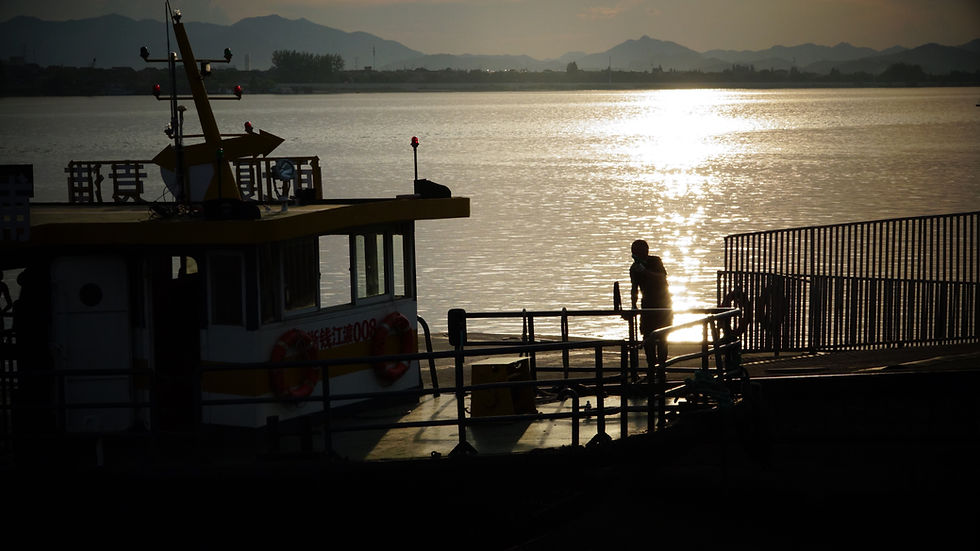From Cargo to Commuter: A Boat Captain’s Journey on Hangzhou’s Grand Canal
- Yan Zhang
- Nov 3, 2025
- 2 min read
Updated: Nov 29, 2025
Hangzhou’s Grand Canal is more than a UNESCO World Heritage site—it is a living artery of the city, where history and daily life flow together. One of the best ways to experience it is aboard the Water Bus Line 1, which links neighborhoods like Wulinmen, Xinyifang, and Gongchen Bridge over a scenic 40–50 minute route.
On a quiet afternoon, I boarded at Wulinmen Pier and took a seat behind the pilot, Captain Wang. At 58, he has a calm presence, his hands moving steadily over the controls as the city’s waterscape unfolds around us.
A Different Kind of Driving?
When I asked whether piloting a water bus is like driving a car, Captain Wang smiled. “It’s completely different,” he explained. “On the road, you have traffic lights. In an emergency, you brake. But here, even if I pull back the throttle, the current and wind keep pushing the boat. You can’t fight the water—you can only work with it.”
From Sand to Passengers
Captain Wang’s life on the water began decades ago, piloting diesel cargo ships carrying sand and building materials along the Qiantang River and the Canal. “The boat wasn’t mine—I was hired by the owner,” he recalled. He later leased the vessel, keeping what he earned beyond the rent. During Hangzhou’s construction boom, it was profitable, and he dreamed of buying his own ship one day.
But the tide turned in the late 1990s. “Just when I’d almost saved enough, the sand transport work dried up.” Unwilling to risk his savings in an uncertain market, he continued leasing for two more tough years before finally shifting course.
A New Chapter on the Water Bus
Through a friend’s referral, he transitioned to the water bus system a stable, scheduled service he describes as “like driving a bus, but on water.” For the past eight years, he has navigated the same route, witnessing the city’s transformation from the water.
Becoming a Captain
Becoming a licensed captain on China’s inland waterways is no small feat. Captain Wang had earned his certification for passenger commuting at 42, but the path was long. “You still need to begin as a deckhand. After two years, if you’re capable, you test for the helm license. Then, more experience is required before you can test for the full captain’s license.”
Though he will retire in two years, he looks back without regret. “I’ve never had an accident on this line. The water has given me a good life.”
As we approached Gongchen Bridge, passengers gathered by the windows. In two years, Captain Wang will retire, but his journey—from sand barges to city commuter—remains part of the story flowing through Hangzhou.


![Poem: "The Boatmen Community [A Neo-River Colony]"](https://static.wixstatic.com/media/929abe_e0b364e18dd743ce8092b77179359ff5~mv2.jpg/v1/fill/w_980,h_551,al_c,q_85,usm_0.66_1.00_0.01,enc_avif,quality_auto/929abe_e0b364e18dd743ce8092b77179359ff5~mv2.jpg)

Comments